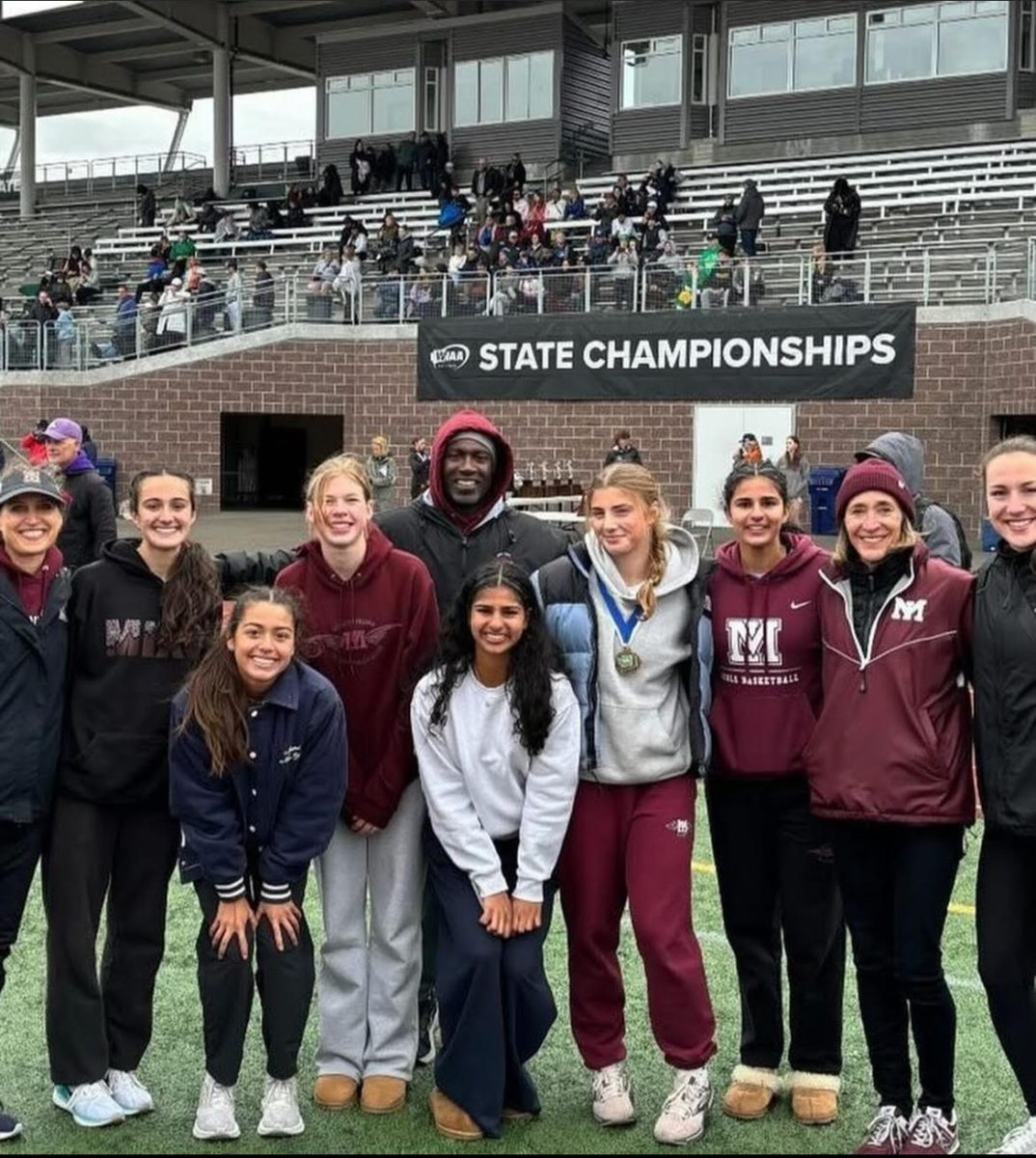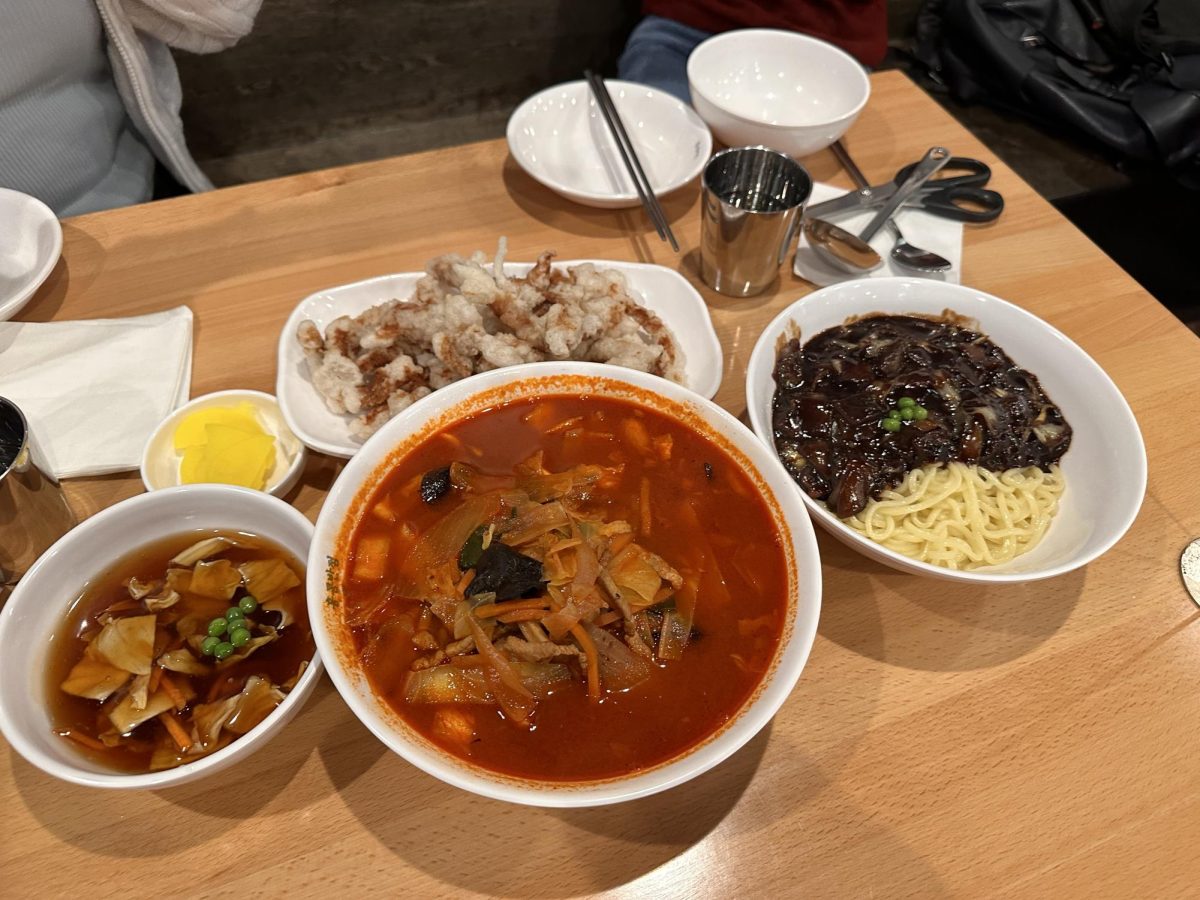Photo by Natalie Chen
Your friend has been working on his Homecoming ask for over a week — buying the flowers, making the sign, even practicing how to ask in the mirror. You’ve never seen him talk to the girl he’s asking (okay, maybe once, in seventh grade) but you know that he really likes her, so you encourage him. After all of his preparations, the day finally comes. He makes his move: “Will you go to Homecoming with me?”
Over the last few weeks, this question has been asked numerous times. But what happens when you don’t want to go with whoever asked you?
Most people would say yes anyway, believing it would be easier to feel uncomfortable for a night than face judgement from their peers. However, this “easy” compromise puts too much pressure on the person being asked.
“The most common reason someone would say no to an unwanted ask is because they’d feel bad,” sophomore Isabella Selwanes observed.
While not wanting to cause embarrassment or hurt the asker’s feelings is a legitimate concern, putting someone else’s comfort above your own as a result should not be normalized.
The stigma that surrounds saying no to Homecoming asks ultimately damages students’ developing awareness of consent.
As a freshman, Eleanor Hargraft was asked to Homecoming by someone who already had a girlfriend.
This year, Hargraft rejected an ask from the same guy, leaving her all too familiar with the question, “Why didn’t you say yes?” and other backlash from her peers.
“The majority don’t say no because you sound stuck-up if you do,” Eleanor Hargraft said. “I felt super uncomfortable and guilty, all at the same time.”
Fear of peer judgment leads students to make the decision to say yes without accounting for their own interests.
“My personal opinion is that rejecting an ask is mean because of the amount of effort the guy puts into it,” one freshman commented.
“People also say no because they’re too scared,” Selwanes said.
For days afterwards, everyone — even her friends — told Hargraft that she was rude for declining and that she should tell him she changed her mind.
Hargraft stood by her choice.
“The second time he asked, [I said no] because I didn’t feel safe going out with him,” Hargraft admitted.
These seeds of fear bloom in the face of the withering consequences that befall women who reject their suitors. What if it wasn’t Homecoming? What if it was a movie he was asking her to? Or dinner? Or to climb into his car, or come over to his house?
Unfortunately, these are not just hypothetical situations. In 2014, Elliot Rodger murdered two girls that he thought were the “hottest” at his university because they wouldn’t sleep with him. Rodger is just one of many cases of violent crime against women who dare to say no.
Margaret Atwood cut to the root of the issue in her novel Handmaid’s Tale: “Men are afraid that women will laugh at them. Women are afraid that men will kill them.”
Pressuring high school girls to accept Homecoming asks in spite of their own feelings reinforces this dangerous behavior in our own community. Girls feel unable to say no, and that’s a problem.
“I didn’t feel safe going out with him,” Hargraft said. “He kept asking why and wouldn’t stop blowing up my phone. He still acts really possessive and overbearing.”
Islanders, when will we stop pushing our friends to feed this cycle?
When will we place our own value above everyone else’s expectations?
















Betty • Jan 5, 2022 at 12:54 pm
Very interesting and engaging article. I like how it went beyond social pressure and went into safety issues as well.
Kate • Dec 17, 2021 at 12:57 pm
I really liked this article and thought it shared an interesting and important point of view that I hadn’t considered as a safety issue, so I thought that that was a really important topic to highlight.
Jordan • Dec 17, 2021 at 12:56 pm
I agree with this point of view- the expansion upon the further consequences is something that I feel could help convince those who don’t share this viewpoint, this article is informative and important for all to read.
Alena Bellion • Jun 5, 2020 at 2:23 am
I simply want to mention I am very new to blogging and site-building and actually enjoyed you’re web blog. More than likely I’m want to bookmark your blog post . You definitely have very good writings. Regards for sharing with us your web site.
Oscaramj56245afsdfsaf5621 • May 11, 2020 at 11:50 pm
‘Cancel culture’ approved the Macquarie thesaurus declaration of the year
In an additional reminder which a year happens to be simply sailing toward his or her edge, The Macquarie thesaurus will have claimed the winner of 2019 the word of the year.
The annual rivals applies Macquarie dictionary committee of eight to the position of business word from a record that’s great reflects the present day or buzz of the past year.
this particular year, The irresistible test is customs that the committee thought as thinking within a residential area which will need or promote the revulsion with regards to help on the large public determine, which includes special deal linked with an actress function, a ban on the topic of in a painter music, treatment within social growing media, thus, mostly understand what greater evidence to an accusation with the socially distasteful movement and it could be comment or short in front of the amount. of course, call out tradition, Outrage civilization.
a good example may just be the wreckage of position of disgraced drive-in brand Harvey Weinstein after the anyone exceedingly canvassing campaign on top of that hundreds of allegations of sperm harm into your own.
the reasoning has arrived below mockery and additionally derision in recent years, complete with initial chief executive barack obama reporting is an excellent political and consequently phone down other buyers had not been supportable.
thought of purity and there is a constant destroyed and you politically woke, And everything that stuff you should get over that fast, mister president obama celebrity fad.
imminent danger i just check out among younger people, in particular upon a college education grounds, constantly I get an awareness of among confident adolescents, that is expanded courtesy of social newspaper and tv, That the way of for me building amend should be as judgas is possiblental for people and that good enough.
The first was a phrase meaning of worry and as well as dating thai women anxiety as a result of the results of global warming to the Macquarie thesaurus, the words surrounded out doors shaming to get an honourable describe concept a ardently emotionally charged factor you can thought patterns climate change, and that is essentially definitely an item has been of the great importance in 2019 a colloquial expression interpreted as curvaceous and moreover voluptuous, will also accepted the honourable cite.
Joshuarency • Apr 7, 2020 at 6:30 am
Ukraine Girls within the internet
widespread Ukraine Girls Names
Dating Advice publications April 30, 2011
Many men communicating with Ukraine girls online get confused with their names. at the start, Let’s see how full names in the Ukraine consist. All Ukrainian kids are given only a name by his/her parents.
Read your ArticleA Perfect Gift For Ukraine Girls
Dating Advice writing July 18, 2011
If you want to the Ukraine to meet a lady [url=https://ukrainianwomenonlinedating.blogspot.com/2019/06/2-stereotypes-and-2-truths-about.html]online dating ukraine[/url] you met online, You might consider bringing a gift for her. Choosing the right gift may be near on impossible for you. Just like women from any place in the world, Ukraine girls and women like [url=https://russianwomendate.weebly.com/blog/what-should-i-prepare-for-a-date-with-russian-women]online dating ukraine[/url] taking gifts.
Read your ArticleTips For Safe Dating Ukraine Girls Online
Dating Advice items August 5, 2011
The Beatles’ down in their classic hit sang, “The Ukraine girls relatively knock me out, Helped start a desire for the beautiful women of Eastern Europe. They are known to not only possess stunning beauty, But also be hard working and devoted wives, along with nurturing mothers.
Read the particular ArticleMore Men Are Marrying Ukraine Girls; why is Them So Special?
Dating Advice article marketing July 7, 2010
There seems to be a new trend that sees more and more men planning marriage to Ukraine girls. Why do they create this choice.